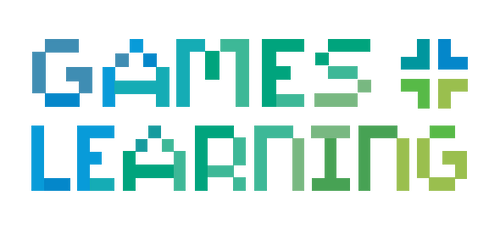Games & Learning conducts original research of the market, including customers, trends, and drivers that influence preK through higher education. Our reports explore digital and game-based learning, educational outcomes, and equitable access.
Reports
Digital Learning for All: A Games and Learning Report
To better understand the impact of the sudden shift to remote learning on American kids, we reviewed relevant research reports, tracked device distribution strategies across more than 100 school districts and held bi-weekly discussions with content providers. We convened several dozen thought leaders to discuss the latest research, and explore opportunities for providing high-quality digital learning tools to all students. The following articles provide highlights from our analysis and recommendations for next steps.
- Bridge the Equity Gap with Digital Learning (2020): How can digital content help vulnerable kids who are learning at home? We convened a three-part summit with leading funders, researchers, content providers and outreach organizations.
- Shift to Remote Learning Increases Access for Students in Need (2020): Per our analysis, as of July 16th, 2020, more than 3 million devices (Chromebooks, laptops, iPads and other tablets, etc.) had been distributed to students across the United States.
- The Digital Divide: A Pre-Existing Condition for At-Risk Students (2020): As the COVID-19 pandemic stretched from weeks to months, it exposed deep-rooted inequalities that have existed in various areas of society for years, and education was no different.
National Science Foundation Project
With support from a 2019 Phase I Small Business Innovation Research grant from America’s Seed Fund by the National Science Foundation, Games and Learning, Inc. developed an initial digital learning pilot working with the nonprofit organization First Book. (See related EdSurge and EdWeek articles.)
- Survey Reveals Educator Insights on Use of Digital Learning Tools (2020): We surveyed more than 500 teachers in the First Book network on how they use digital learning tools. Consistent with several years of prior research with First Book members, we heard that educators embrace digital learning benefits but struggle to find, buy and adopt high-quality materials. Three out of four educators reported using educational apps at least several times per week, primarily to help students learn and apply core lessons.
GamesandLearning.org Archive
Gamesandlearning.org launched in 2013, based on work done at the Joan Ganz Cooney Center at Sesame Workshop. The work had targeted what might help “move the needle” for game-based learning. Through interviews with developers, funders and educators the idea emerged to create an unbiased information source for the space. One that tried to outline effective development, marketing and research methods to help game makers create more quality digital learning tools and bring them to market. Key resources from the site are archived below:
- Digital Games, Tools Move Towards Core of Classroom (2019): A survey conducted by FirstBook, the nonprofit that works with underserved and other communities, and Games and Learning asked teachers who use digital tools what they use and how they utilize them. The survey found more than half (52%) used digital learning tools every day. All told nearly 80% use the games, apps and ebooks several times a week or more.
- Budget, Devices — Not Buy-in — Tops Educators Challenges in Using Digital Tools (2018): A survey of the First Book network, including 611 educators serving low-income communities, found that while the vast majority see the value of digital resources to advance learning, a lack of budget, adequate devices and relevant content continue to pose barriers for underserved kids. The three quarters of those surveyed who are actively buying and administering these tools also say that they are convinced of the educational value they hold. As one educator noted, “Funds are limited but the resource need is great.”
- The Big Picture Series by Sande Chen (2016): In 2006, indie game developer and author Sande Chen studied the state of the games for impact movement in the book she co-authored called “Serious Games: Games That Educate, Train and Inform.” Gamesandlearning.org asked her to revisit that work to see what has or has not changed in the field of learning games. Topics include: The Analog Learning Games, Facing Edutainment’s Dark Legacy, the Merging of Entertainment Games and GBL, and the Real State of Learning Game Funding.
- Level Up Learning: A National Survey on Teaching with Digital Games (2014): Amid a boom in investment and experimentation with educational technologies in U.S. schools, digital games are gaining a strong foothold in the K-8 classroom, as teachers report incorporating video games in their curriculum with positive results. A national survey of nearly 700 U.S. K-8 teachers conducted by the Joan Ganz Cooney Center and the Games and Learning Publishing Council reveals that almost three-quarters of K-8 teachers are using digital games for instruction. Four out of five of those teachers report that their students play games at school at least once a month.
